The third IDEAS Summer School took place in Basel, Switzerland from the 23rd-27th September 2018.
The week started with a full day course on Adaptive Clinical Trials, led by Franz König (Medical University of Vienna). This was an extremely informative and engaging workshop which finalised the ESRs’ training programme.
On the Monday and Tuesday, the ESRs attended the 3rd EFSPI Regulatory Statistics Workshop which gave them the opportunity to present their latest research to colleagues from across industry and academia in the form of the poster presentations listed below:
- Improving a safety of the Continual Reassessment Method via a modified allocation rule (Pavel Mozgunov, Lancaster University, UK)
- Designs for oncology clinical trials: Exploring the relationship between time to progression and overall survival (Enya Weber, Lancaster University, UK)
- A Bayesian decision-theoretic approach to leverage preclinical information into a phase I first-in-man trial (Haiyan Zheng, Lancaster University, UK)
- Optimising the sample allocation across a multi-stage adaptive confirmatory clinical trial (Nicolas Ballárini, Medical University Vienna, Austria)
- Clinical Trial Designs with Data-Driven Selection of Subgroups (Julia Niewczas, Medical University Vienna, Austria)
- Incorporating historical information in biosimiliar trials (Johanna Mielke, Novartis Pharma AG, Switzerland)
- A multiple comparison procedure for dose-finding trials with subpopulations (Marius Thomas, Novartis Pharma AG, Switzerland)
- A Bayesian adaptive design in cancer phase I/II trials with drug combinations using escalation with overdose control (EWOC) and adaptive randomization (José Jiménez, Politecnico di Torino, Italy)
- Parametric inference for PK models defined by stochastic differential equations (Elvira Erhardt, Politecnico di Torino, Italy)
- New inference methods for adaptive Phase II designs with binary endpoint (Arsénio Nhacolo, University of Bremen, Germany)
- Multiple testing approaches for evaluating the effectiveness of a drug combination in a multiple-dose factorial design (Saswati Saha, University of Bremen, Germany)
- Cumulative risk of toxicity in Phase I trails of targeted therapies: what to expect at the recommended Phase II dose? (Maria-Athina Altzerinakou, INSERM, France).
- Model selection based on combined penalties for biomarker identification (Eleni Vradi, Bayer AG, Germany)
- A novel Bayesian K-PD model for synergy: Challenges and opportunities for sequential knowledge integration (Fabiola La Gamba, Janssen Pharmaceutica, Belgium)
On the Tuesday evening, three ESRs gave the talks listed below while the others also gave a short introduction to their research to promote the IDEAS Dissemination Workshop taking place the next day:
- Graphical approaches for subgroup analysis in clinical trials (Nicolas Ballárini, Medical University of Vienna, Austria).
- Cancer phase I trial design using drug combinations when a fraction of dose limiting toxicities is attributable to one or more agents (José Jiménez, Politecnico di Torino, Italy).
- Bayesian variable selection and classification with control of predictive values (Eleni Vradi, Bayer AG, Germany).
On Wednesday, 26th September, the IDEAS Dissemination Workshop took place at Novartis. The workshop was of great interest to those working in in both industry and academia and attracted around 70 delegates. Each ESR presented their research and more details about the event, including copies of the talks and posters, can be found here.
On Thursday, the final team building activity took place at the Pharmazie Museum in Basel. The IDEAS ESRs and partners were treated to a private tour of the museum and the apéro session in this beautiful location was the perfect way to finish our final event.
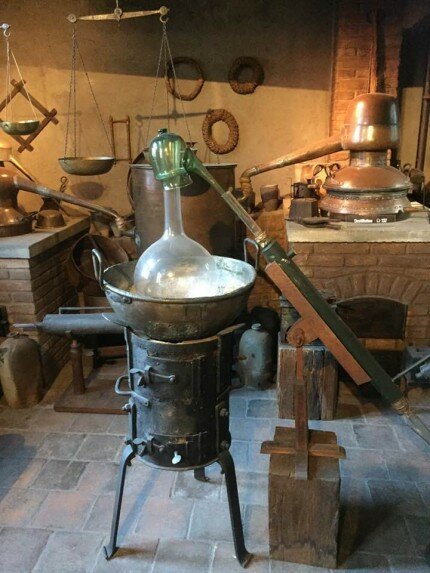
The IDEAS Network was treated to a private tour of the Pharmacy Museum in Basel
|
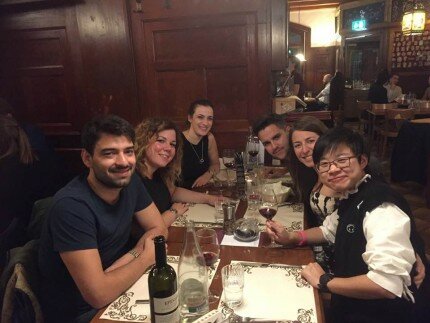
ESRs enjoy the group dinner on Wednesday
|
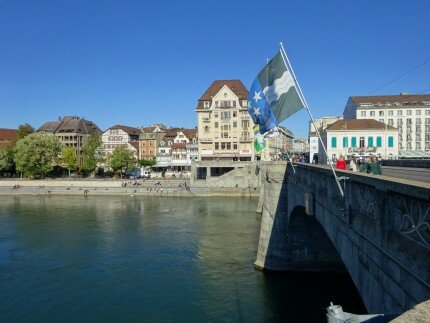
Lovely Basel was the perfect location for our final event
|
You must be logged in to edit your profile.
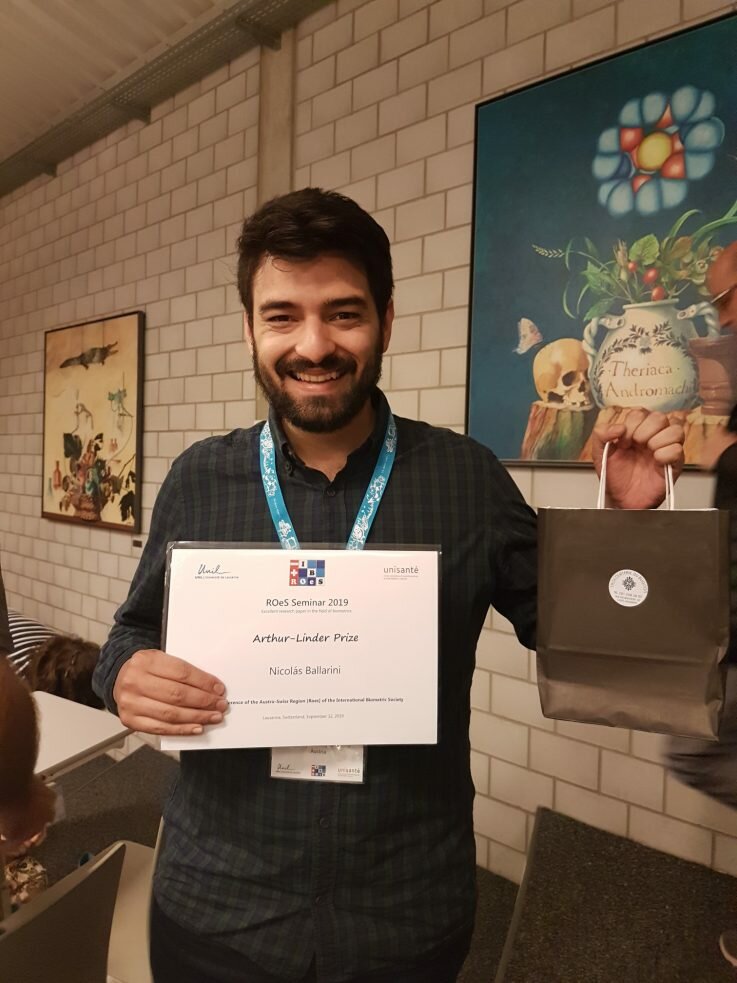


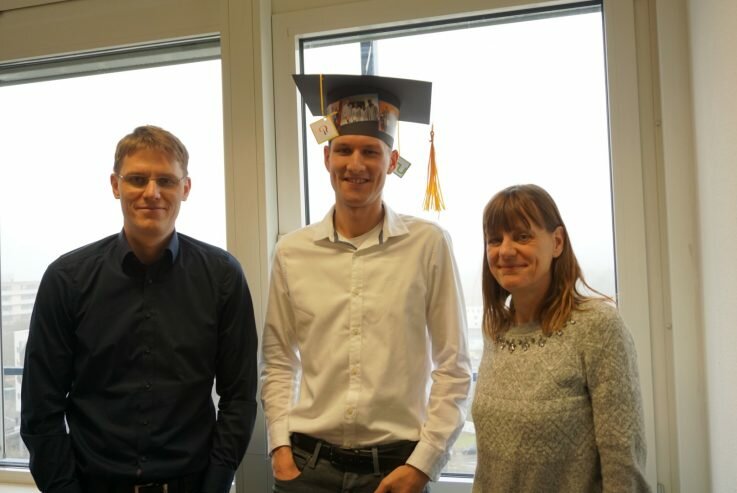
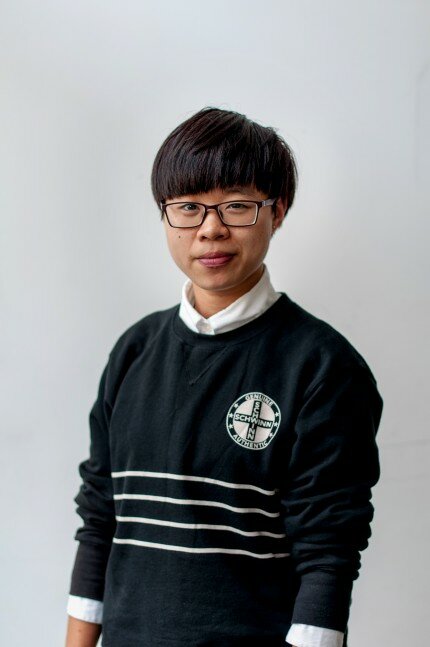
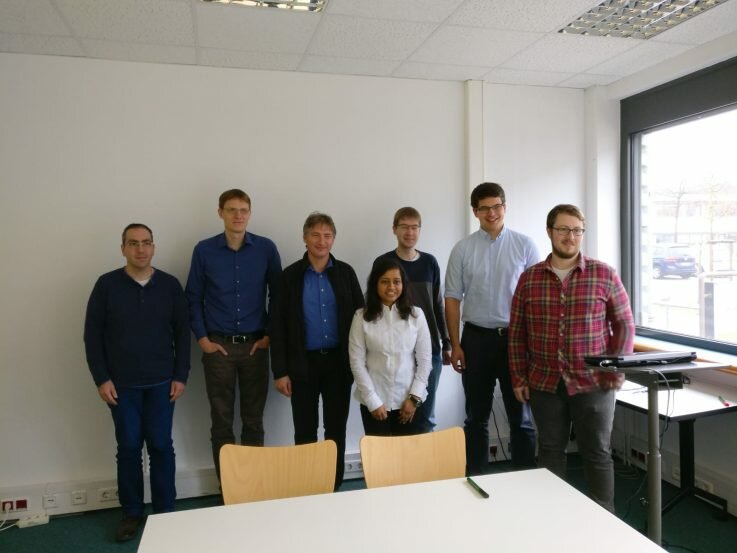
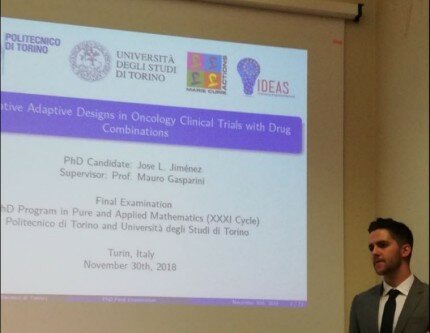
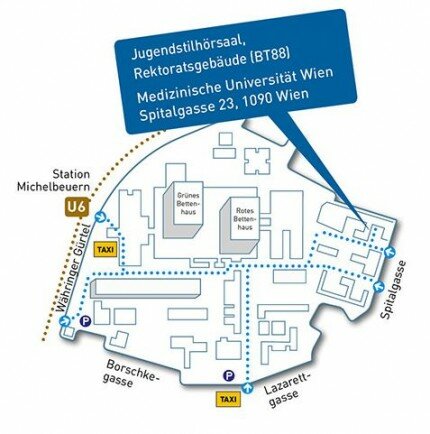
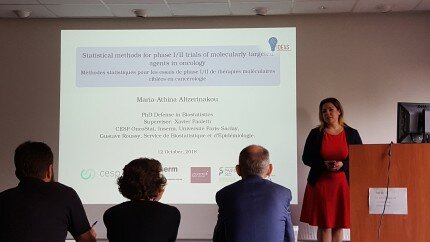
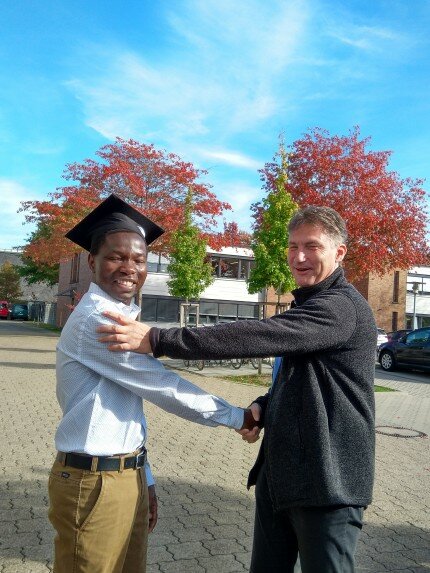
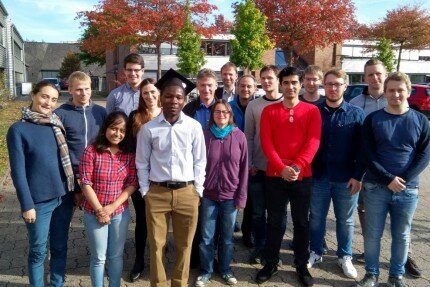



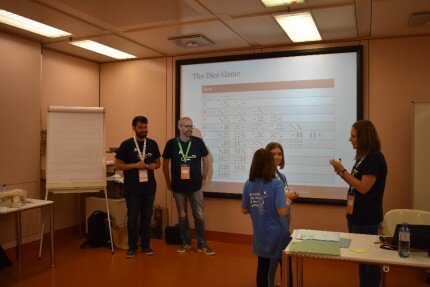
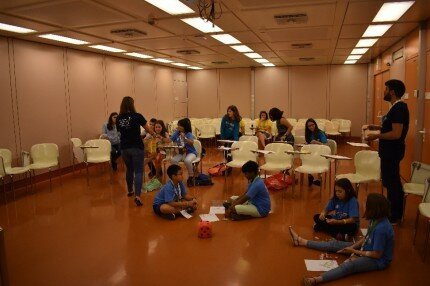
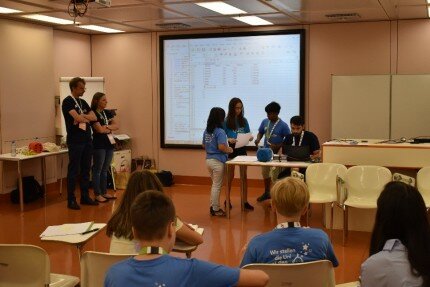
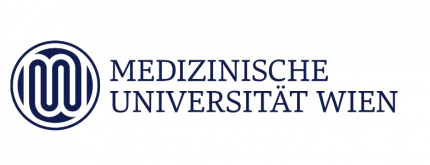
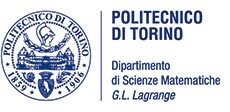


Share this page
share using:
Or copy and paste this page address:
https://www.ideas-itn.eu/forums/users/allan-gordon/